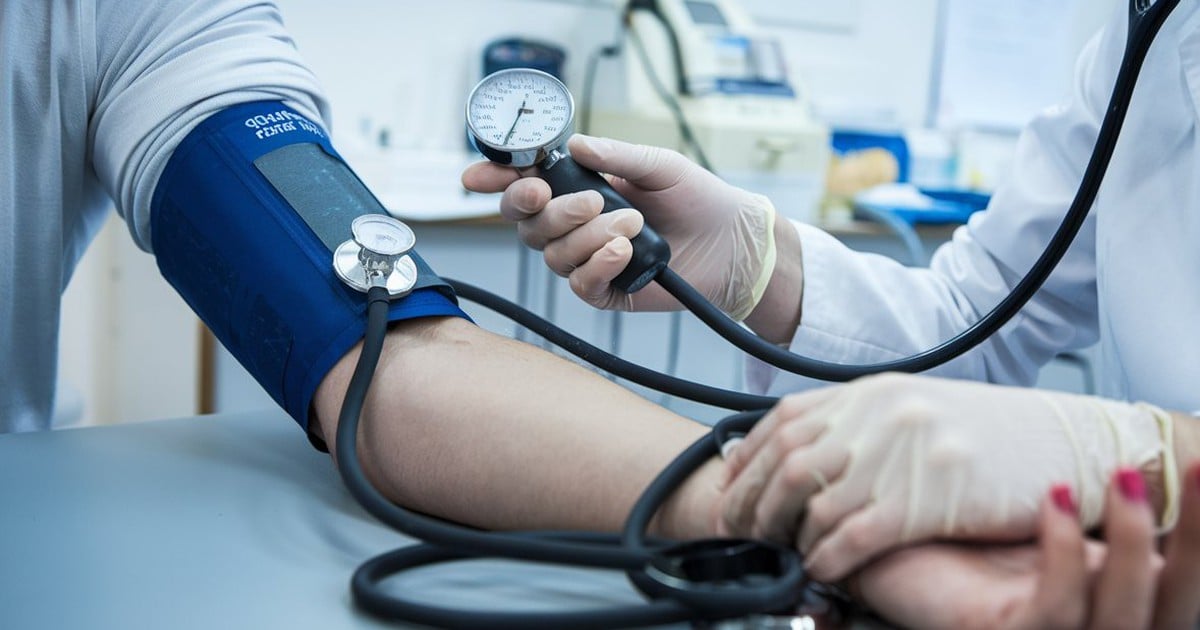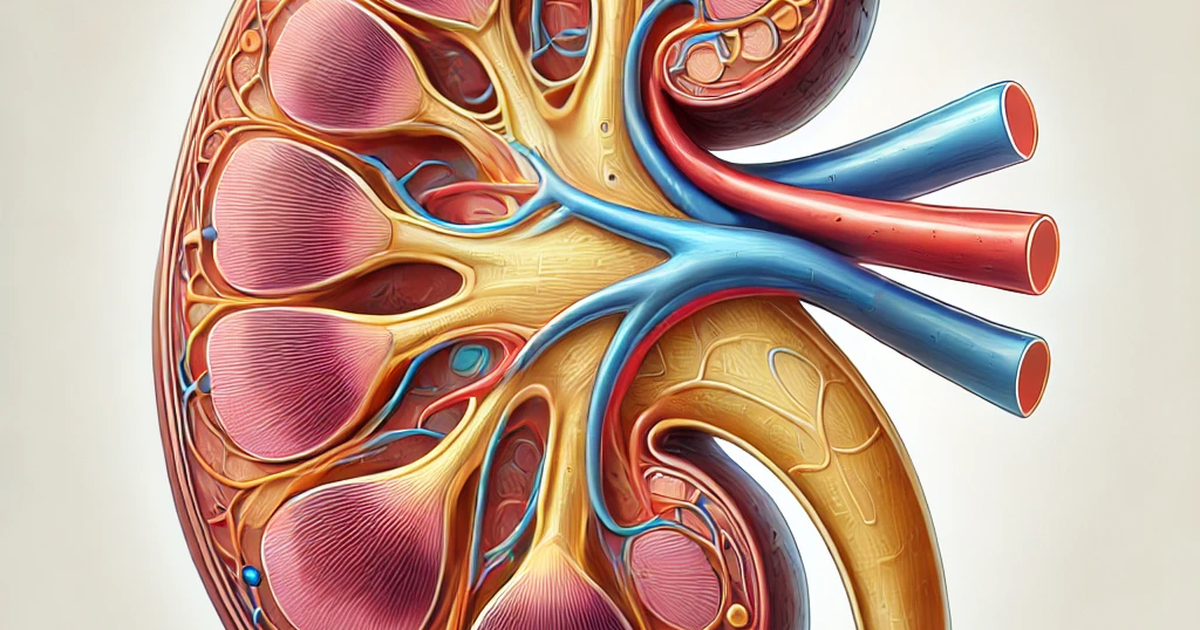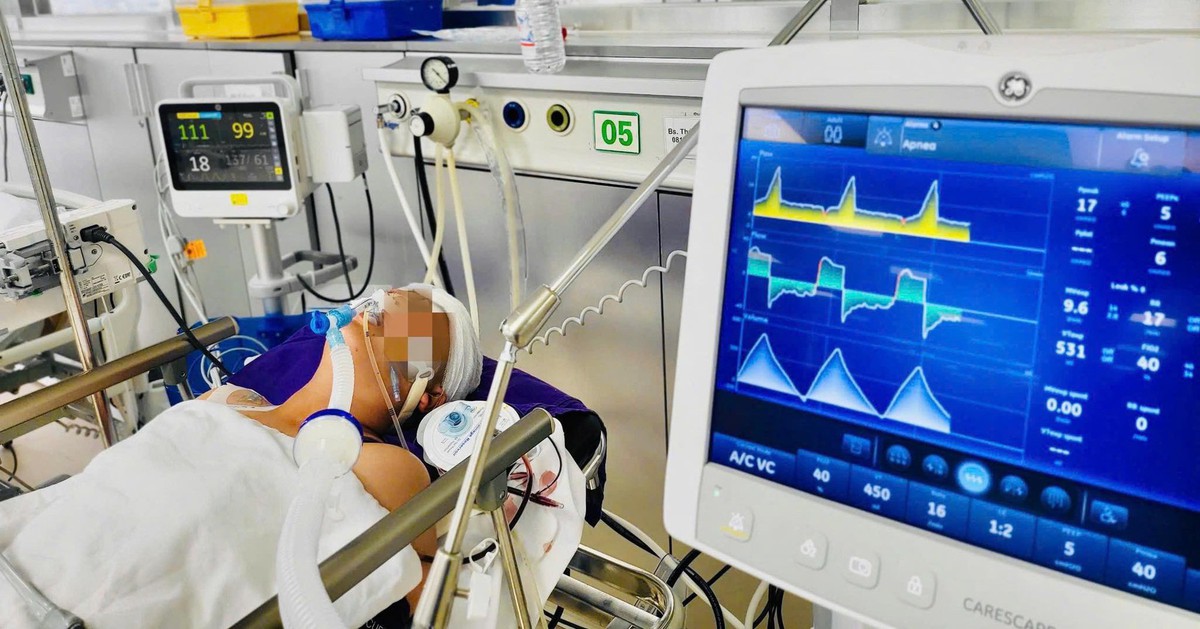Keep warm, limit carbonated drinks, drink plenty of water to help reduce digestive symptoms caused by low temperatures.
Dr. Hoang Nam, Department of Gastroenterology, Tam Anh General Hospital, Hanoi, said that the decrease in temperature slows down the metabolism to conserve energy and keep the body warm. People often encounter many problems such as stomachache, bloating, reflux... in the cold season.
There are many reasons why the digestive tract has many problems when the temperature drops, such as consuming junk food and fast food. These foods contain high amounts of salt, fat and sugar that can irritate the digestive tract, causing discomfort.
According to Dr. Nam, many people feel stressed and anxious because their bodies have difficulty adapting to low temperatures. Stress has a negative impact on the body, affecting the digestive tract first.
Many people's sleep cycles are disrupted and the cold season, reduced daily water intake, less exercise, slower metabolism... contribute to a significant reduction in food digestion time.

Drinking warm water helps digestion in cold weather. Photo: Freepik
To increase metabolism, people should keep their bodies warm and avoid the effects of temperature and cold wind outside, especially the abdomen.
Wear layers of clothing and other protective gear such as gloves, hats, and scarves when going out on cold days to increase body temperature and speed up metabolism.
Limit your consumption of carbonated drinks because the carbonation can easily irritate the digestive tract, making gastrointestinal problems worse. You should choose drinks that can improve intestinal function and enhance resistance such as fruit juice, warm tea...
In cold winter, the body sweats less due to the tendency to move less and play sports less. Everyone should make sure to drink enough water. and prioritize warm enough water. Water helps speed up the elimination of toxins, maintain the digestive process, and prevent poor digestive conditions.
People should avoid spicy foods because they can easily irritate the lining of the digestive tract, causing uncomfortable symptoms for the stomach such as heartburn, bloating, indigestion...
Eat many small meals with just enough food, do not eat too much or too full, especially foods high in protein, to help reduce the burden on this organ.
Physical activity for optimal health in winter. When exercise is appropriate, the body moves to increase speed, stimulating blood flow to the digestive system.
In addition, reducing stress, not smoking, and not drinking alcohol helps reduce digestive problems in winter.
Doctor Hoang Nam encourages people to eat easily digestible foods, prioritizing hot soups, green vegetables high in fiber, herbs and spices, and foods rich in vitamin D.
When experiencing digestive problems, patients can reduce discomfort by not lying down or going to bed for a few hours after meals, avoiding fatty and acidic foods when having a stomach ache, and using medication as directed by the doctor.
Most of the unpleasant symptoms are usually mild and recover quickly when improving lifestyle and diet. However, if abdominal pain increases, persistent vomiting, difficulty swallowing, persistent sore throat or hoarseness, frequent diarrhea or constipation..., the patient should go to a medical facility for examination.
Emerald
| Readers ask questions about digestive diseases here for doctors to answer |
Source link





![[Photo] "Beauties" participate in the parade rehearsal at Bien Hoa airport](https://vstatic.vietnam.vn/vietnam/resource/IMAGE/2025/4/11/155502af3384431e918de0e2e585d13a)

![[Photo] Looking back at the impressive moments of the Vietnamese rescue team in Myanmar](https://vstatic.vietnam.vn/vietnam/resource/IMAGE/2025/4/11/5623ca902a934e19b604c718265249d0)























![[Photo] Summary of parade practice in preparation for the April 30th celebration](https://vstatic.vietnam.vn/vietnam/resource/IMAGE/2025/4/11/78cfee0f2cc045b387ff1a4362b5950f)





























































Comment (0)